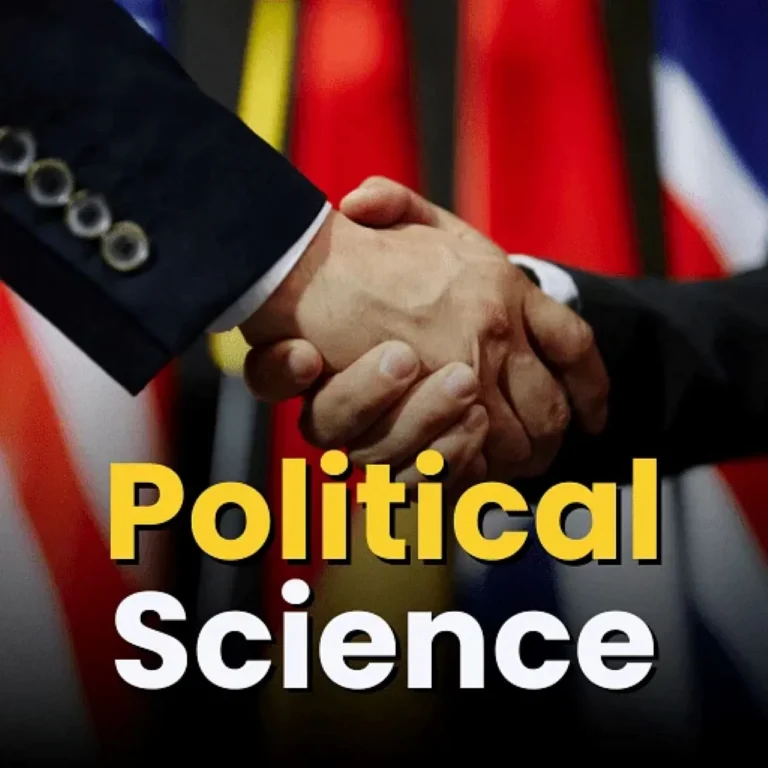Why Political Science Is A Science
The question of whether political science is truly a science has been debated for decades. At first glance, politics can seem partisan, subjective, and far removed from the objectivity we associate with scientific fields.
However, political science exhibits many of the hallmarks of an empirical social science and relies on the scientific method to build knowledge. In this comprehensive article, we’ll examine the characteristics that qualify political science as a science, the rigorous methods political scientists use, and the valuable role the field plays in society.
If you’re short on time, here’s a quick answer to your question: Political science is considered a science because it uses systematic methods of empirical investigation, measurement, and hypothesis testing to build a body of knowledge about government and politics.
Political scientists follow the scientific method, use quantitative data, create testable theories, and rely on the peer review process.
Empirical Study of Politics
The field of political science is grounded in empirical study, using data and evidence to understand and analyze political processes, institutions, and behavior. This approach allows political scientists to apply scientific methods to the study of politics, making it a legitimate science.
Quantitative data analysis
One key aspect of political science as a science is the use of quantitative data analysis. Political scientists collect and analyze data on various political phenomena, such as voting behavior, public opinion, and policy outcomes.
By employing statistical techniques, they can uncover patterns and relationships that help explain political phenomena. For example, through survey research, political scientists may analyze large datasets to determine how certain demographic factors influence voting behavior in elections.
Scientific method
Political science also adheres to the scientific method, which involves formulating hypotheses, collecting data, and testing those hypotheses. This systematic approach allows researchers to make objective and evidence-based conclusions about political phenomena.
By following this rigorous process, political scientists can ensure that their findings are reliable and replicable. For instance, a political scientist studying the impact of campaign advertising on voter turnout may design an experiment to test the hypothesis, collecting data and analyzing the results to draw valid conclusions.
Objective research
Political science strives to be objective in its research, aiming to minimize bias and subjectivity. By using systematic methods and rigorous analysis, political scientists seek to uncover the truth about political phenomena, rather than advancing personal or ideological agendas.
This commitment to objectivity distinguishes political science as a science, as it emphasizes the importance of evidence-based research. It allows for a more nuanced understanding of political processes and helps inform policy debates and decision-making.
Key Features of Scientific Inquiry
Theory building and testing
One of the key features of scientific inquiry is the process of theory building and testing. In political science, researchers develop theories based on observations and existing knowledge. These theories are formulated to explain political phenomena and make predictions about future events.
For example, a political scientist may develop a theory to explain the behavior of voters during an election campaign. This theory could propose that voters are more likely to support a candidate who aligns with their ideological beliefs.
Once a theory is developed, it is tested through empirical research. This involves collecting data, analyzing it, and evaluating whether the evidence supports or refutes the theory. Statistical analysis is often used to determine the strength of the relationship between variables.
By following this rigorous and systematic process, political scientists can build a body of knowledge that is grounded in evidence.
Falsifiability of hypotheses
In scientific inquiry, hypotheses are statements that can be tested and potentially proven false. This principle of falsifiability is essential for distinguishing scientific theories from unfalsifiable claims.
In political science, hypotheses are formulated to make specific predictions about the relationship between variables. For example, a hypothesis could propose that an increase in government spending will lead to a decrease in unemployment rates.
To test the hypothesis, political scientists collect data on government spending and unemployment rates over a specific time period. If the data contradicts the hypothesis, it is considered falsified. This means that the hypothesis is not supported by the evidence and may need to be revised or rejected.
By embracing falsifiability, political science ensures that theories are subject to rigorous testing and can be refined based on empirical findings.
Replication of findings
Another important feature of scientific inquiry is the replication of findings. Replication involves conducting the same study or experiment again to determine if the results can be reproduced. This process is crucial for establishing the reliability and validity of research findings.
In political science, replication is essential for ensuring that conclusions drawn from a single study are not based on chance or unique circumstances.
Political scientists often publish their research findings in academic journals, allowing other researchers to attempt to replicate the study. If multiple studies consistently produce similar results, it strengthens the credibility of the original findings.
This process of replication and verification contributes to the cumulative nature of scientific knowledge in political science.
Peer Review Process
In the field of political science, just like any other scientific discipline, the peer review process plays a crucial role in ensuring the quality and credibility of research. It is an essential step in the scientific method that allows experts in the field to evaluate and critique the work of their peers.
This process helps to maintain the rigor and integrity of political science as a science.
Vetting by experts
The first step in the peer review process involves the submission of research papers to scholarly journals. These journals employ a rigorous vetting process where experts in the field carefully evaluate the content, methodology, and significance of the research.
These experts are often professors, researchers, or scholars who have extensive knowledge and experience in political science. They assess the validity of the research, its contribution to the existing body of knowledge, and its adherence to ethical standards.
This vetting process ensures that only high-quality research that meets the standards of the scientific community is published. It acts as a filter to weed out subpar or flawed studies, thus preventing the dissemination of inaccurate or misleading information.
Weeding out biases
Another important aspect of the peer review process in political science is its ability to detect and eliminate biases. The experts involved in the review process carefully scrutinize the research for any biases in the methodology, data collection, analysis, or conclusions.
They ensure that the research is conducted and presented in an unbiased and objective manner.
This critical evaluation helps to maintain the credibility and neutrality of political science research. By identifying and addressing biases, the peer review process ensures that the findings are based on sound evidence and can be trusted by the wider academic community and the general public.
Promoting high-quality scholarship
Through the peer review process, political science journals play a vital role in promoting high-quality scholarship. By publishing only the best research, these journals contribute to the advancement of knowledge in the field.
They provide a platform for researchers to share their findings, engage in scholarly debates, and build upon existing research.
The peer review process also encourages researchers to strive for excellence in their work. Knowing that their research will undergo rigorous evaluation by their peers motivates scholars to conduct thorough and meticulous research, ensuring that their work meets the highest standards of scientific inquiry.
Prediction and Explanation
One of the key reasons why Political Science is considered a science is its ability to predict and explain various political phenomena. By utilizing empirical research methods and analyzing data, political scientists can make accurate forecasts about election outcomes, understand political behavior, and explain the impact of policies.
Forecasting election outcomes
Political scientists have developed sophisticated models and statistical techniques to predict election outcomes. By analyzing historical voting patterns, public opinion polls, and socio-economic factors, they can make informed predictions about which candidate or party is likely to win an election.
These predictions are not based on guesswork or subjective opinions, but rather on rigorous analysis of data.
For example, the renowned political scientist Nate Silver successfully predicted the outcomes of the 2008 and 2012 U.S. presidential elections using his statistical model, which takes into account various factors such as the state of the economy, approval ratings, and historical voting patterns.
Such accurate predictions demonstrate the scientific nature of Political Science.
Understanding political behavior
Political Science aims to uncover the underlying factors that influence individuals’ political behavior. Through surveys, experiments, and analysis of historical data, political scientists strive to understand why people vote the way they do, what influences their political ideologies, and how social and economic factors shape their political attitudes.
By studying political behavior, political scientists can develop a deeper understanding of how societies function and make informed predictions about future political trends. For example, by analyzing voting patterns and demographic changes, political scientists can predict shifts in party support or the rise of new political movements.
Explaining the impact of policies
Another key aspect of Political Science is its ability to explain the impact of policies on society. By examining the outcomes of different policy choices and analyzing their effects on various social and economic indicators, political scientists can provide evidence-based explanations for policy outcomes.
For instance, through rigorous research, political scientists can evaluate the impact of healthcare reforms on public health outcomes or assess the effectiveness of environmental policies in reducing carbon emissions.
These insights help policymakers make informed decisions and shape public discourse on important policy issues.
Political scientists often publish their research in reputable academic journals, such as the American Political Science Review or the Journal of Politics, which undergo rigorous peer review. This process ensures that the findings are based on sound methodology and contribute to the advancement of knowledge in the field.
Contribution to Society
Political science is not only a science but also a crucial field that makes significant contributions to society. Through its rigorous research and analysis, political science plays a vital role in informing policy decisions, educating engaged citizens, and strengthening democracies.
Informing policy decisions
One of the primary contributions of political science is its ability to inform policy decisions. Political scientists study and analyze various aspects of politics, including government structures, public policies, and political behavior.
By examining patterns, trends, and outcomes, political scientists provide valuable insights into the potential consequences of policy choices.
For example, when governments are considering implementing new laws or regulations, political scientists can conduct research to determine the potential impact on society. They can analyze data, conduct surveys, and use statistical models to assess the effectiveness and potential consequences of different policy options.
This information is crucial for policymakers as they make informed decisions that can have far-reaching effects on the lives of citizens.
Educating engaged citizens
Political science also plays a crucial role in educating engaged citizens. Through research, analysis, and teaching, political scientists help individuals understand the complexities of politics and the functioning of government.
They provide a wealth of knowledge about political systems, ideologies, and the mechanisms of power.
By educating citizens, political scientists empower them to be active participants in the democratic process. Informed citizens are more likely to engage in political discussions, vote in elections, and hold their elected officials accountable.
They can make informed decisions based on a deep understanding of political processes and policies, leading to a more engaged and informed electorate.
Strengthening democracies
Political science contributes to the strengthening of democracies by studying the functioning of political institutions and processes. Through their research, political scientists identify areas of improvement and provide recommendations for enhancing democratic practices.
For instance, political scientists may study the impact of campaign finance regulations on the influence of money in politics. They can analyze the effects of gerrymandering on electoral outcomes or examine the effectiveness of voter turnout initiatives.
By studying these aspects, political scientists can identify potential weaknesses in democratic systems and propose reforms to address them, ultimately strengthening the democratic process.
Conclusion
In conclusion, political science exhibits the key features of a science, including systematic empirical research, hypothesis testing, data analysis, peer review, development of theories, and contribution to society’s understanding of political phenomena.
While no social science can achieve the exactness of the physical sciences, political science adheres to rigorous scientific methods that justify its classification as a true science. Its focus on building an objective body of knowledge illustrates that politics can be studied just as systematically as other sciences.







